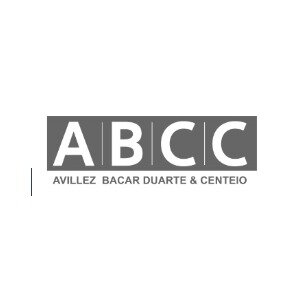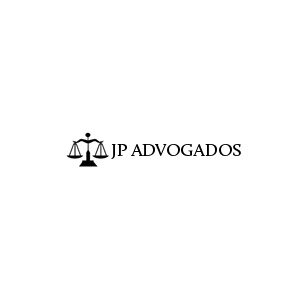Best Immigration Lawyers in Mozambique
Share your needs with us, get contacted by law firms.
Free. Takes 2 min.
Or refine your search by selecting a city:
List of the best lawyers in Mozambique
About Immigration Law in Mozambique
Immigration law in Mozambique governs the movement of people across its borders, the residency and work permits, and the rights and obligations of foreign nationals within the country. In recent years, Mozambique has seen an increase in foreign investment and tourism, leading to an evolved legal framework for immigrants. The law is designed to facilitate the legal entry and stay of professionals, investors, skilled workers, and tourists, while also safeguarding the socio-economic interests of Mozambican citizens.
Why You May Need a Lawyer
There are several circumstances when one might require the services of a lawyer specializing in immigration law in Mozambique:
- Complex Visa Applications: Navigating the visa application process can be complicated, especially for work or business visas, where specific legal and regulatory requirements must be met.
- Residency Permits: Applying for or renewing residency permits often involves comprehensive documentation and adherence to strict deadlines and guidelines.
- Legal Disputes: Foreign nationals may encounter legal issues pertaining to employment, residency status, or other immigration-related matters.
- Deportation Defense: In the unfortunate event of facing deportation, a lawyer can help present your case and navigate legal defense avenues.
- Business Immigration: For investors and entrepreneurs looking to establish businesses, legal advice can help in understanding the requirements and procedures for doing business as a foreign national.
Local Laws Overview
The key aspects of Mozambican immigration laws include:
- Visas: Different types of visas are available depending on the purpose of visit-tourist, transit, business, work visas, etc. Each has specific eligibility criteria.
- Residency Permits: Mozambique offers temporary and permanent residency permits, which require compliance with specific conditions and procedures.
- Work Permits: Foreigners must obtain work permits to engage in any professional activities. These are usually tied to residency permits and require employer sponsorship.
- Naturalization: There is a process for obtaining Mozambican citizenship, albeit with stringent requirements and a long processing time.
- Immigration Offenses: Established laws and penalties apply for breaches of immigration rules, such as overstaying a visa or working without proper authorization.
Frequently Asked Questions
What types of visas are available in Mozambique?
Mozambique offers several types of visas, including tourist, business, and work visas. Each has specific requirements and validity periods.
How long can I stay in Mozambique on a tourist visa?
A tourist visa typically allows a stay of up to 30 days with the possibility of extension. Conditions may apply for extensions.
Is it possible to work in Mozambique with a tourist visa?
No, working with a tourist visa is prohibited. A separate work visa is required for employment.
How do I apply for a residency permit?
Residency permits can be applied for at the Ministry of Interior or through Mozambican embassies. Documentation such as a valid passport, visa, and proof of employment might be required.
What are the penalties for overstaying my visa?
Overstaying can lead to fines, deportation, and possible bans on future entry. It is crucial to abide by visa conditions and expiry dates.
Can my residency permit be revoked?
Yes, residency permits may be revoked for violations of law, failure to maintain required conditions, or on public interest grounds.
What is needed to obtain a work permit in Mozambique?
Typically, a job offer from a Mozambican employer is required, along with submission of necessary documents such as proof of qualifications and a valid passport.
Is it possible to obtain Mozambican citizenship?
Yes, it is possible through naturalization, which involves a lengthy process, several years of residency, and fulfilling legal requirements.
Who can assist me if I face deportation?
Consulting an immigration lawyer can provide guidance and legal representation in deportation cases.
Can I renew my residency permit or work permit while still in Mozambique?
Yes, renewals can be processed within Mozambique, though timely application submission is crucial to avoid lapses and penalties.
Additional Resources
For those seeking further assistance, the following resources can be valuable:
- Ministry of Interior: Key governmental body responsible for immigration services.
- Embassies and Consulates: Provide support for visa and immigration matters.
- Legal Aid Services: Various NGOs and legal aid organizations may offer assistance to the needy.
- Immigration Lawyers: Professionals with expertise in immigration law can provide personalized guidance.
Next Steps
If you find yourself in need of legal assistance regarding immigration in Mozambique, the following steps should be considered:
- Consult a Lawyer: Reach out to an immigration lawyer for advice and representation.
- Gather Documentation: Collect all necessary documentation related to your immigration status.
- Contact Relevant Authorities: Engage with appropriate governmental agencies for information and assistance.
- Stay Informed: Keep abreast of any changes or updates in Mozambique’s immigration laws.
Lawzana helps you find the best lawyers and law firms in Mozambique through a curated and pre-screened list of qualified legal professionals. Our platform offers rankings and detailed profiles of attorneys and law firms, allowing you to compare based on practice areas, including Immigration, experience, and client feedback.
Each profile includes a description of the firm's areas of practice, client reviews, team members and partners, year of establishment, spoken languages, office locations, contact information, social media presence, and any published articles or resources. Most firms on our platform speak English and are experienced in both local and international legal matters.
Get a quote from top-rated law firms in Mozambique — quickly, securely, and without unnecessary hassle.
Disclaimer:
The information provided on this page is for general informational purposes only and does not constitute legal advice. While we strive to ensure the accuracy and relevance of the content, legal information may change over time, and interpretations of the law can vary. You should always consult with a qualified legal professional for advice specific to your situation.
We disclaim all liability for actions taken or not taken based on the content of this page. If you believe any information is incorrect or outdated, please contact us, and we will review and update it where appropriate.
Browse immigration law firms by service in Mozambique
Mozambique Attorneys in related practice areas.
Browse immigration law firms by city in Mozambique
Refine your search by selecting a city.












